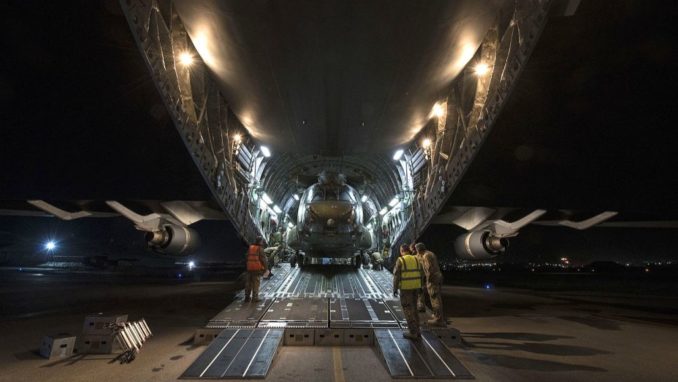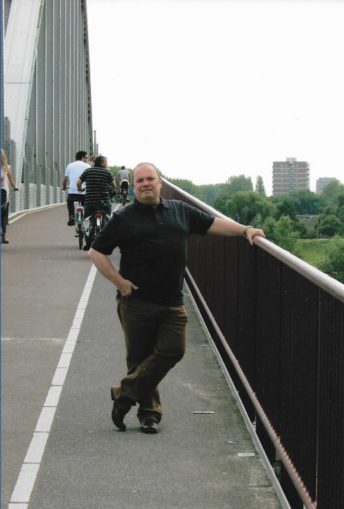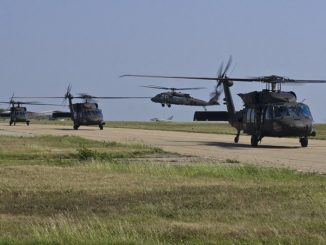
Monday 16th February
Margin was constantly amazed at just how little work was completed in the ISAF Headquarters. Most of the day-to-day running of operations in Afghanistan were carried out by the ISAF Regional Commands and it seemed madness to have another tier of command, duplicating the functions of the RCs. And how much did it all cost? To paraphrase Churchill: Never in the field of Human conflict, was so little achieved, by so many for so much. Even the size of the CJ Med team was huge, fourteen of them doing more or less the same job that six of them had done in Iraq.
To Margin ISAF Headquarters was merely another irrelevance that talked to Brussels on a weekly basis through a teleconference and of course the interminable e-mails. Although the Americans bore the brunt of NATO’s costs, they paid lip service to the organisation and operationally did their own thing, especially in trying to hunt down Osama Bin Laden. The Brits in Helmand were warfighting in the poppy fields and pro-rata were bearing the brunt of the casualties. The French mission was facing serious challenges after a shocking ambush in Sarobi, the district of Kabul Province they were responsible for patrolling, killed 10 French troops. It emerged that part of the reason why they were ambushed was because the Italian government was paying bribes to the local Taliban commander and when these bribes stopped, the Taliban attacked the French. The Canadians had had enough and were looking for a way out. The Spanish were getting good at volleyball, the Swedes and Danes were well out of the action in the north of the country and so were the Germans. And don’t get me started on the bloody Germans, Margin thought bitterly.
They swamped the headquarters and had a huge contingent in RC North that never seemed to do anything. Their helicopter assets couldn’t or rather wouldn’t operate any more than thirty minutes flying time from their home bases and they wouldn’t fly at night. This rendered the entire German rotary assets useless for forward aeromedical evacuation, in support of other RC units. But because they had so many troops in the country, albeit largely useless, Germans formed the bulk of the staff officers in the ISAF Headquarters.
But in Margin’s case, his dislike of the Germans was purely personal. The Med Ops SO1 was a female, German naval commander and their shared dislike had been instant and mutual. She was a waspish, devious creature, determined to get on at any cost, as long as it was in a headquarters environment. He believed that she had done one operational tour as a doctor on a German destroyer and then moved straight into staff work. She had come from NATO Headquarters to complete an operational staff tour for promotion to Captain. Inevitably he called her Rosa Klebb, much to the discreet amusement from his fellow staff officers. And Margin knew that she knew that’s what he called her. He had gone into her office in her absence to find a MIMS Drug Handbook and saw on her computer screen she that had Googled “Rosa Klebb.” There may be trouble ahead, thought Margin and there was.
The previous Thursday after the night he got back, she had come into the office he shared with five others and looked at him with surprise.
“So, you finally managed to come back,” she said coldly, “I thought that we would have to replace you with a competent German staffer.”
“I had to come back,” Margin had replied without bothering to look up from his computer screen, “I was missing you too much, Commander Kraus.”
After she left there was an awkward silence in the office. Finally, Stavros, the Greek Reserve major who was a vet filling an environmental health officer’s post asked quietly: “Why does she hate you so much, Christophe?”
“Because she overheard me telling a crappy, old joke to Colonel Željko: Why are the roads in France lined with trees? So, the German army can march in the shade. And I suppose calling her Rosa Klebb hasn’t really helped.”
Margin’s role in the headquarters was the responsibility for medical infrastructure throughout the ISAF area, specifically the oversight of the construction of two twenty-five bed medical treatment facilities (MTFs). In reality the project ran itself with the NATO Maintenance and Supply Agency (NAMSA) overseeing progress from the Turkish contractors. And all Margin had to do, was brief Brussels on progress during the weekly teleconference.
The position for the role of reconstruction and development in CJ Med department was currently gapped since the Dutch incumbent had left, so Margin had taken up some of the responsibilities, which included meetings at the Afghanistan Ministry of Health. He found these meetings with civilian agencies frustrating, not to mention perturbing. Once he had been dropped off, he was often the only non-Muslim and ISAF person in the building. Although it was frowned upon, he took his L85, reasoning that 120 rounds were more useful than the Glock’s seventeen rounds, which he also took, tucked discreetly in an inner pocket of his smock. It was comforting to feel the rifle with his boot, on the floor under the conference table. If Rhona had of known about his trips to the Ministries, the airport and the Afghan Military Hospital, she would have gone off her head. Wisely Margin never told her and he never did.
Trips “outside the walls” were something of a double-edged sword. It was good to leave the rather claustrophobic headquarters, which wasn’t big enough to have a decent running route, although the gym facilities were excellent and lunchtime circuit training was well-attended. The freedom to move through the city was always tempered by the danger of Taliban attacks, whether roadside IEDs or vehicle-borne suicide IEDs ramming the ISAF vehicles. As part of the arrivals process, they had all had to watch a film the Americans had made, showing the dangers of insurgent attacks. It was an endless montage of exploding cars, vans, busses, and jingle trucks and showed in graphic detail what explosive devices did to the human body. Margin, who had seen first-hand in Iraq the results of explosive devices, had found the film to be sickening. And the problem was that the Taliban was getting better. They were adapting their attacks and had learned that standing and fighting the well-armed ISAF troops was an excellent way of meeting the seventy-two virgins. Improvised IEDs were much more productive and safer for the end-user.
Another frustration was the “National Caveats” that various contributing nations to ISAF used, often Margin suspected in national self-interest. The Germans wouldn’t fly at night or more than thirty of their minutes from base. Some of the contributing nations’ rules of engagement (ROEs) were pretty weak (and that included the British) and the Greeks were debarred from offensive action and therefore were base bound. On the other hand, the Americans would open fire if somebody looked at them in a funny way.
Margin often found solace in the Combined Joint Operations Centre (CJOC), the vast, semi-underground hub of ISAF operations. Surrounded by Hesco Bastion blast walls, it was laid out like a medical lecture theatre with rows of banked computer screens and chairs, facing the stage and solid wall of huge TV monitors. The medical operations centre was one of the pews towards the middle right of the CJOC, just up from the Loggies. The regular incumbents were a Belgian warrant officer, A Czech army lieutenant and a US lieutenant naval reservist. They worked twelve-hour shifts and Margin was glad to help them out while they went for meals or did some personal admin. Like all of them, they had one afternoon off a week, on Fridays.
From here all of the theatre medical assets were monitored: bed states, manning and equipment levels, aeromedical evacuation teams and aircraft locations and numbers and the severity of patients. The only time Margin felt he was contributing in any meaningful way was when he was in the CJOC. Some of the screens showed live feeds from the Predator drones and a vast map screen indicated the locations and status of air and ground assets, both in theatre and throughout the Middle East. Obviously, most were American, but he was particularly interested in the RAF Chinook helicopters in Helmand Province. There and in RC East was where most of the action was taking place. With spring approaching it was going to get very busy. Medical operations were Margin’s bread and butter and had been his raison d’etre for most of his commissioned career. Strangely, his German SO1 Med Ops seldom visited the CJOC.
Medical assets in theatre were a very finite resource and a major incident could quickly overwhelm the local MTFs due to lack of operating tables and high dependency beds. The key was in moving casualties around to where they could be treated, but for that you needed aeromed teams and air assets. Margin and all of the medics in theatre were blessed by having a British J3 Air Ops in the headquarters. He was an airborne lieutenant-colonel who had a good handle on his brief and when he could, he ensured that medical moves were prioritised. Margin respected him even though he could put up a veneer of distain when approached by an SO2 “hat.” Margin never bullshitted, got his facts right and only pushed in extremis. He was happy in the CJOC and often stayed there well into his downtime, missing meals, watching operations unfold on screen in real time. But as Colonel J3 Air Ops had rather cuttingly pointed out, it wouldn’t be a bad thing for him and his middle-aged spread.
Margin was also very up to date with all the medical issues and ongoing projects for a simple reason. He was British and English was the language of NATO, so most of the staff officers in CJ Med, passed him their staff work to check for grammar. He was rather humbled by their excellent written English, although they used the wrong words, spelled slightly differently such as here, hear, their, there and they’re and their use of apostrophes was challenging. The colonel had discretely given him Commander Kraus’s confidential report to check, and it was interesting to read that he was damning her with faint praise. But part of one sentence almost made him laugh out loud.
“Colonel, I really would phrase this slightly differently: … over the time we have spent together in the headquarters I have come to know of her intimately, and she is very good.”
He explained the connotations and Colonel Nguyen looked mortified.
“How about: “…during my time as Commander Med in the headquarters, I have come to appreciate Commander Klaus’s tireless efforts and admire her operational style?” although it had nearly made him vomit to say it.
Squadron Leader Margin was a difficult man to read and quantify, which was probably why his SO1 Med Ops so disliked him. In the Belbin team roles evaluation, he would be mainly a Plant with Resource Investigator traits and some aspects of an Implementer. Other people who knew nothing of such matters, called him autistic.
But on that Monday afternoon in February, Margin was in a foul mood. He had attended a meeting in the Ministry of Public Health with DFID representatives. It was supposed to have concerned a measles vaccination programme, for the transient population that moved annually from the Swat District, across the mountains into Afghanistan. Most of the meeting had involved the two idealistic youngsters from DIFD, twittering on about plans to build a women’s only fun park near Kabul’s old zoo. Most of the animals had died from starvation or been eaten. Then his transport back to the headquarters was late, and he had been forced to lurk in the pot plants in the Ministry foyer. Worse, he had missed lunch.
He came into the office and dumped his helmet and body armour on one of the wooden stands that were dotted around the offices. He put his rifle in the rack with the Glock and slumped down at his computer with a sigh. Somebody had altered the height of his chair and he put it back up with annoyance. The three others in the office picked up there was something wrong, so they studiously ignored him while Margin went through his e-mails, grumbling at the amount of unnecessary dross. As the afternoon wore on, two of the others left for various other meetings. Lieutenant-Colonel Željko Grzan, the Croatian Doctor swung his chair round and stared at Margin’s tense back.
“Christophe, am I take it from your demeanour that you are being something of a drama queen? Why don’t you come with me, and I’ll treat you to a cup of coffee?”
Margin turned away from his computer screen and stared at the Colonel’s owlish face, “Colonel Željko, I have spent three hours being gushed at by naïve members of my country’s Department for International Development. We were told what an absolutely spiffing idea it would be for my country’s taxpayers to fork-out to build a fun theme park for Afghan women. I have been forced to hide in the Ministry’s shrubbery like a Japanese sniper. I have missed my lunch and Hancock. I’ve got lunatics laughing at me from the woods. My original plan has been scuppered now that the jeeps haven’t arrived. My communications are completely broken down. Do you really believe any of that can be helped by a cup of coffee?”
Colonel Željko laughed and clapped, “Oh that’s very good, Christophe. A Bridge too Far. One of my favourite British movies. Couldn’t hurt, sir, is I believe the correct response.”
Margin smiled reluctantly. It seemed that the Croatians had an endless appetite for British films and television programmes. Colonel Željko was a particular fan of ‘Allo ‘Allo! Which for some strange reason was a huge hit in Croatia.
“What about my weapons?”
“Lock them in classified documents cabinet. As an SO1, I have a key. You, being an SO2, don’t.”
“The lovely Ms Klebb has already reminded me of that.”
The colonel looked at the rifle and its optical sight, “Why do you go out like the Terminator, lugging that thing around with you. You only draw attention to yourself.”
Margin shut the door and the colonel locked the cabinet, “It’sa because it’sa my national caveat and ‘allo you lovely laydies,” Margin told him in a passable Captain Bertorelli accent.
They went to the Italian café in the bazaar the other side of the headquarters building. (War is hell). When it had been a Russian legation building, the grounds had been landscaped. Now there were only a few trees, some hardy shrubs and lots of feral cats. They sat outside waiting for their coffees, smoking Željko’s Marlboro cigarettes. They watched a pretty female USAF lieutenant crouched down, stroking the cats who were inundating her. They knew she sometimes fed them.
“It’s the cat lady,” Margin murmured, “She asked Stavros, or rather me to ask Stavros to look after a cat that some cruel bastard had stomped on.”
“She’s very cute,” the colonel observed with a critical eye.
She looked up and saw the two of them watching her, then wandered over. She politely inclined her head to the Croatian officer, as only generals and above were saluted in the HQ and smiled at margin, “Hi, Squadron-lieutenant. I see you’re back.”
“I am. Won’t you join us?”
“Thanks, but I’ve already been out of the office for too long.”
“How’s the patient?” Margin asked.
She frowned not understanding at first, but then she remembered and beamed, “Oh you mean Garfield. He gets around, but his legs are a bit stiff. Odie helps him a lot. They’re always together. Thank Major Stavros for me again wouldya?”
“Of course.”
She turned to leave then suddenly turned back and grabbed Margin’s hand with both of hers, “I was so sorry to hear of your loss. Guess your Mom and Dad are with God now.”
They watched her walk away and Margin suddenly felt choked at such an unexpected and kindly display of empathy.
“It is a small headquarters. I think that young lady likes you very much, Christophe.”
“No, she was just being kind. And even if she wanted to have my babies, she couldn’t under threat of military, and I think Federal law. I’m married and she would be in all kinds of trouble if we got up to any hanky-panky. So would I. Rhona would have my bollocks.
“We do six months out here. They do a year, so if they want to get some unconditional love from a cat, who am I to say anything. She was heartbroken when she told me someone had hurt her cat so it was the least I could do to ask Stavros to try and fix it. And now she thinks CJ Med are all right and so do all her friends. You could go into stores right now and get anything you want within reason.”
When the coffee came, they drank it in companionable silence, listening the hubbub and rumble of the city’s traffic and vehicle horns, unseen beyond the security walls. Finally, Colonel Željko put down his cup and gave them both another cigarette.
“Now, Christophe. Why the anger and melancholy? You normally laugh in the face of danger, tweak the nose of terror.”
“Blackadder unless I’m mistaken,” Margin sighed, “I spoke to Rhona on the phone last night. She said that she saw my mother.”
Colonel Željko lit the cigarettes with a battered zippo lighter and looked at Margin carefully.
“You think I’m mad, don’t you?”
“What did she see?”
“My mother wearing a blue spotted dress, the one she nearly always wore. She was next to the wardrobe, clearly visible head and face, but becoming more indistinct down her body and there was no sign of her legs.”
“Did your wife say if she said anything?”
“No, she was reading a book in bed with the bedside light on. She looked up and there she was. My mother just smiled and then faded.”
“Was your wife frightened?”
“No, she said she felt kind of peaceful. Almost like my mother told her not to worry, although she never spoke. You do think I’m mad, don’t you?”
For once Colonel Željko was very serious,” I am a god-fearing man, Christophe, although you may not believe it. There is more on earth and in heaven that we will ever know or understand in our mortal coil. During the Croatian War of our Independence in the early nineties, I was a doctor attached to the Special Units. I would sometimes go out with them and look after them if they were injured. It was very hard for me, because…”
He paused, thinking what to say, “Because I knew which of them were going to die before the fighting started. They would have a kind of halo around their heads, a light that cast no shadow. It nearly drove me mad. You will not tell anyone of this.”
Margin looked at this bearded, jovial, roly-poly man and tried to think of him fifteen or so years earlier. Now he understood the crest on the zippo lighter. And then he remembered reading something about Michael Bentine, who when he had been an RAF intelligence officer in the Second World War, saw the skulls through their faces of those who would die that night.
“I believe your wife, Christophe. So should you. Do you believe me?”
“Yes, I believe you, Željko. Can you still…?”
“Sometimes.”
“You poor sod!”
The Goodnight Vienna Audio file
© Chris Downes/Blown Periphery 2023

Christophe Downes 28th July 1957 – 30th March 2023



